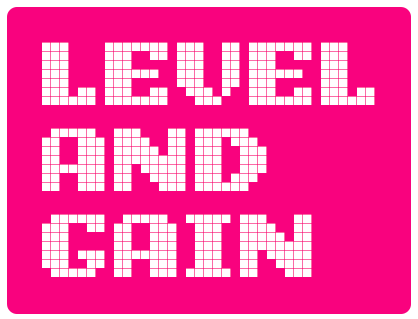BY CHRISTOPHER LEON
Level and Gain has officially LAUNCHED! To celebrate our debut month, we partnered up with Aussie music mag CutCommon, sharing some of its all-time favourite interviews with screen music creators — including this one. You’re welcome.
What’s the difference between writing scores, cues, and themes for these screen platforms? In this blog, we take a look.
Composing for film
Film requires a composer to work around two elements that align with certain events on-screen: cues are certain points in the film where a defined action or event takes place; and themes are often symbolic musical passages or leitmotifs (a term coined by Wagner whereby a musical theme is attached to a character or situation).
The composer and director work closely to integrate the music into the film. However, scoring is never a straight-forward process, as editing of the film in the final stages usually detaches synced musical cues, and results in a need for the composer to ‘patch up’ inconsistencies.
Film requires a linear approach to scoring. A story is being told, and a composer’s job is to help tell that story through music, and to perfectly accompany the events in the film. Therefore, a composer needs to understand the director’s and the overall narrative.
The music plays a hugely important role: the difference between a good score and a bad one can essentially determine the film’s public reception.

Composing for television
In television, musical themes carry over many episodes. In this environment, leitmotifs play an integral part in recalling events from previous episodes, and to draw viewers in by repeating the main theme throughout the series. For instance, in Game of Thrones, composer Ramin Djawadi uses augmentation and diminution of the main theme to foreshadow important scenes.
Scoring for TV usually requires a composer to work flat-out on the series. As there are multiple episodes, there must be original music for each episode’s cues and onscreen event. Many production companies won’t have the time or budget to continuously hire orchestras to record every episode’s music. Therefore, TV composers turn to high-quality sample libraries for their orchestral and acoustic instrument needs – some popular libraries are from Spitfire, EastWest, and ProjectSam.
With the time constraints of series’ production schedules, TV composers must take different approaches to their work processes. These composers have a solid understanding of music production techniques, mixing and mastering hardware, and comprehensive knowledge of music production software.

Composing for game
For me, video games present a challenging and unique creative experience. There are various ways in which audio and music are integrated into a game. Middleware audio applications such as FMOD Studio and Wwise take finished audio and allow it to be integrated into a game through a game enginesuch as Unity, Unreal, and Havok. Cues and themes can be written months (even years) before the game is finished and the number of cues are astronomically more than film – think into the hundreds.
In modern video games, the narrative is no longer a linear structure. Storylines change and the decisions made by a player affect the direction of the game. How do you score for such events? Well, through middleware applications, the game engine is able to determine at what point in the game a piece of music or sound effect should play. This is known as adaptive audio.

Featured image by OLEG PLIASUNOV on Unsplash .




